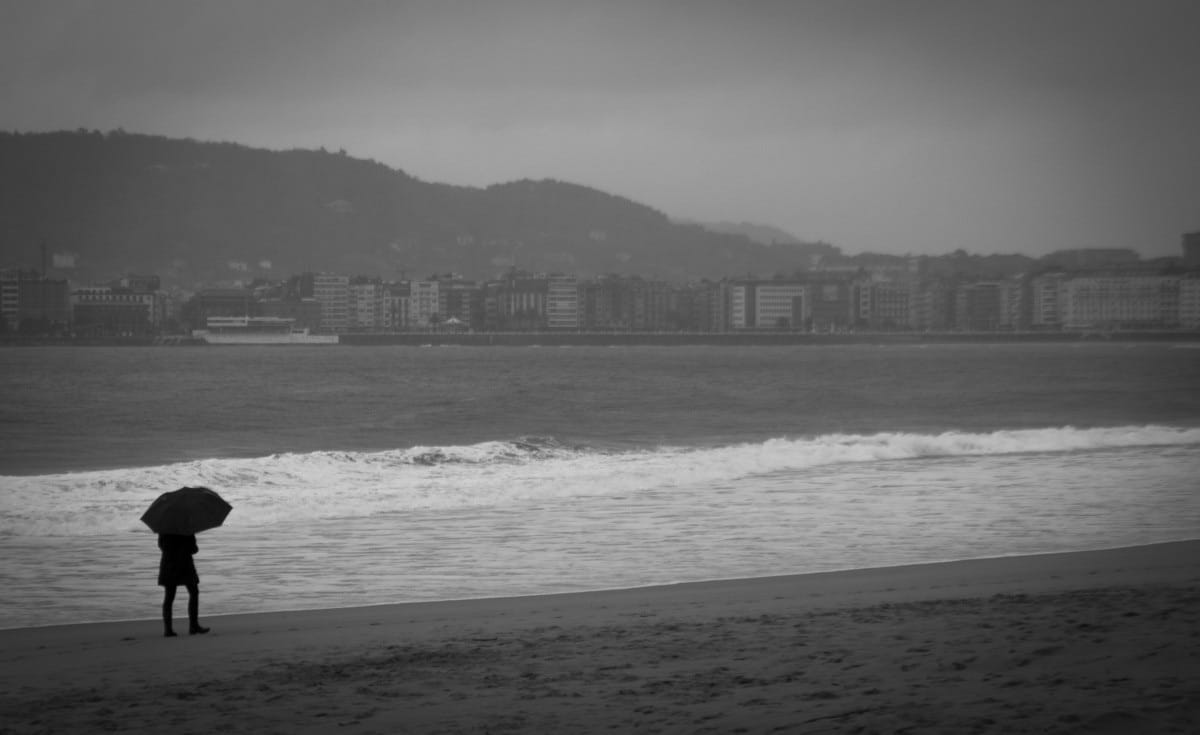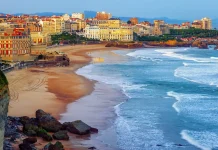This article was translated by John R. Bopp
Here at the blog, we’ve spent the past few summer months surprised by those who are determined to decry the evils that tourism is bringing to the Basque Country. For a while now, we’ve wanted to offer up a compilation of the articles we’ve found on this topic, along with (as one would expect) our thoughts. An article by Ben Groundwater on the Traveller website was what finally got us writing.
The truth is that we’re still not able to assimilate everything we’ve read, heard, and seen about this: graffiti of revolutionary slogans that belong to another time and place; claims that the tourists were the cause of the suffering of someone, we don’t know who; or changing evaluations about the growth in tourism, which ended up sounding coming off as quite a bit of flip-flopping.
Yes, we’ve been left dumbfounded at the development of a campaign that’s voluntarily “unfocused” in its objectives. But it does seem to be causing quite a bit of bad press abroad.
And we’re sure that was one of their main goals. After all, some can’t see improvement as good: it breaks their arguments, it undermines their apocalyptic predictions.
We’ve watched for decades as our image abroad was inextricably tied to violence and danger, and as that image was fostered by governments and the media in their service, with the invaluable assistance of those who set bombs or fired shots in the back of the head. As is obvious, all that is over.
And that means that Basques, or rather certain places in our nation, have to face new situations. We find ourselves living in a country that is attractive to tourists, and that our culture, customs, and way of life complement the landscape, making this a magical place.
All that means that we have to develop the means that guarantee an adequate and sustainable development of those resources. This is the responsibility of our institutions, economic sectors tied to tourism, and the whole of our society.
However, instead of that, this summer, what we’ve found is people who have decided to broadcast very specific messages:
- The business model taken up by some citizens, which originally was presented as “decentralized, alternative, self-regulated, and not controlled by the multinational hotel chains” has become the big enemy, the party guilty of everything. While we have to wonder how many people complaining about this have used this service in their travels to other countries, we believe this is true. This is something that demands a clear, strict regulation that keeps areas of our cities from no longer serving their residents.
- Once again we’ve come across that infinite ability to blame someone else for our problems. Accusing those who visit us of being responsible for the low pay and exploitation of those who serve them would be absolutely hilarious if it weren’t a pathetic example of how decentralized certains sectors of our society are. That low pay and exploitation, where it exists, is the responsibility of our society, and only we can solve it.
- All of this comes with the idea that tourism is finishing off “our way of life”, our “essence”, that we need to drive away the tourists so that we don’t lose what makes us “special”.
Common sense should tell us that the solution to the problems tourism creates isn’t keeping them away, especially when we live in a country whose citizens travel and tour in abundance. We still can’t get out of our heads the “explanation” that we Basques do well when we “travel”, but those who visit us do ill because they’re “tourists”.
Common sense should tell us that the arrival of tourists is not something negative. Tourism is a source of resources we shouldn’t let go to waste. It is true that this is not a case of “anything goes”, nor should increasing tourism be the main cause of our forgetting our true priorities. But nor should we forget that tourism is even something that brings us prestige (and international recognition) for our nation.
Common sense should tell us that all the elements that need controlling are in our hands: the management of those resources, the limit to the number of visitors, the way in which those who come spend the night in our cities, the salaries of the workers who attend to them, and all the other elements that orbit around this part of our economy. Therefore, we should all know that it is not the tourists who are responsible for the negative things that happen, but us.
Fortunately, Ben Groundwater, in his article for the Traveller website, discovered for us at the beginning of summer, before all this controversy erupted, the secret weapon that’s going to save the Basque from all the terrible evils that will befall us with the arrival of the tourists: the rain.
And he’s totally right. The rain in the Basque Country purifies and drives away evil. We don’t need any marches, or offensive graffiti, or insults. All those who want to see fewer tourists just need to start doing rain dances, or attend a “vigil” to ask for the skies to open and for evil to be flushed from our streets, beaches, mountains, and bars.
We’ll leave you with the article by Ben Groundwater, and a compilation of the articles regarding “touristophobia” that we’ve been collecting throughout August.
Traveller – 4/7/2017 – Australia
Great destinations that are not overrun with tourists: So good we don’t want to tell you about them
Thank God for the rain. Thank God for the fact the temperature tends to plummet during winter, that the grey clouds roll in almost daily and the wind whips the tops off the surf and showers the town in salty spray.
(Continue) (Automatic Translation)
A compilation of the articles about “touristophobia” in the Basque Country, on our scoop.it service





